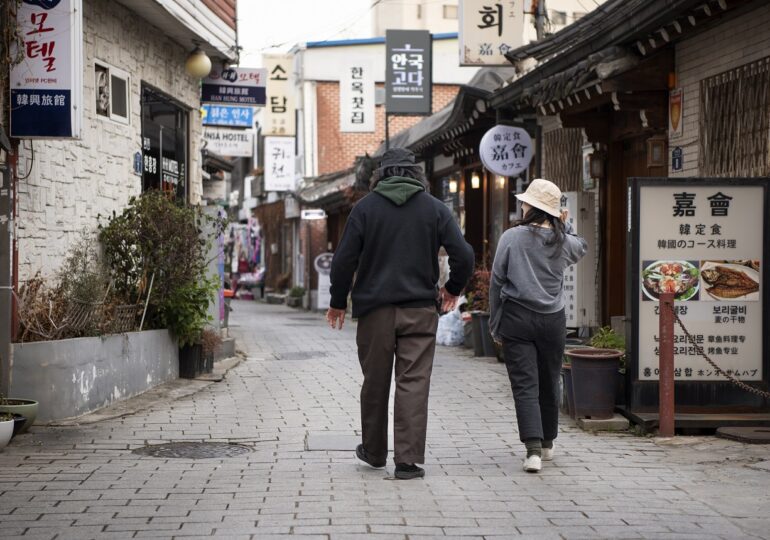Buyers from abroad are interested in empty houses in Japan, with millions available at low prices, but experts warn of the risks.
Buying a home can be an impossible feat for many people, as large parts of the world face a housing shortage. This is not the case in Japan, which has an excess supply of properties. In 2023, Japan had over 9 million „akiya” – as these empty houses are called – according to government data, with some priced under $10,000, CNBC reports.
These houses, often abandoned and left empty for decades, are scattered in rural areas and large cities, offering a unique opportunity for buyers with creative ideas.
– [Akiya: Why does Japan have nine million empty houses](https://spotmedia.ro/stiri/social/akiya-de-ce-japonia-are-noua-milioane-de-case-goale)
### „The burden” many Japanese want to escape
The increase in the number of abandoned houses in Japan is largely driven by a demographic crisis, as the fertility rate dropped to a record low of 1.2 births per woman starting in 2023.
Meanwhile, mortality rates have surpassed birth rates in Japan, as the elderly population continues to grow.
„The akiya issue has developed for decades, rooted in Japan’s post-war economic boom, which led to a boom in housing construction,” said Tetsuya Kaneko, director of research and consultancy at Savills Japan, to CNBC Make It.
„The problem became more pronounced in the 1990s, with Japan’s economic slowdown, and worsened with ongoing demographic changes,” Kaneko said.
Urban migration is another significant factor contributing to abandoned houses in Japan.
„As younger generations move to cities for work, rural areas are left with aging populations, who may die or not be able to maintain their homes,” he added.
Among locals, akiya houses are often stigmatized and even seen as „a burden,” Kaneko said. Therefore, even when family homes are inherited by the children of elderly parents, heirs are reluctant to use or personally sell the property, adding more abandoned houses to the market.
A house that is over 30 years old „is usually considered old,” Kaneko said, and locals tend to be concerned about issues such as safety problems, high renovation costs, and deterioration.
Some people even associate these houses with superstition, „believing they could be haunted or bring bad luck.”
Ultimately, „many Japanese view akiya as assets with more problems than value,” said Michael, founder of the real estate blog Cheap Houses Japan, to CNBC Make It.
„The cheapest properties are cheap for a reason,” he said, whether the location is undesirable or renovations are expected to cost more than the property’s value.
### Attractions for foreigners, but also many pitfalls
Japanese akiya attract attention from foreign buyers.
„We have noticed a growing trend of inquiries from abroad… There has been an increase in interest and [in] akiya acquisitions,” Kaneko said.
This increased foreign interest in properties in Japan was partially driven by the pandemic, remote work trends, and a shift in lifestyle preferences.
From young investors to retirees looking for a retirement place, „more people are looking for second homes, holiday properties, or renovation projects,” he added.
Anton Wormann fell in love with Japan after visiting it during a business trip. Born and raised in Sweden, the 32-year-old traveled around the world at the age of 20, working as a model, before moving to the Asian country in 2018.
„I lived in New York for about two years, then I was practically all over Europe… so I know how expensive all these metropolises are. I can’t buy a house in any of these places I’ve ever lived in,” he explained.
When he discovered that Japan sells cheap houses, he decided to buy one. Six years later, Wormann owns seven akiya and works as a full-time content creator and real estate investor in Japan. He has completed renovations on three of his properties and is currently working on finishing the other four renovations.
Today, a property that cost him a total of about $110,000 for purchase and renovation brings in $11,000 per month in short-term rental income.
So are akiya houses a good investment? Wormann says „yes and no.”
Today, his properties successfully generate six-figure incomes annually, but this would not have happened if he had not spent time and effort getting properly acquainted with Japanese culture, language, and people.
„You need to create a good community and a good social network in Japan to be successful. You can’t come without understanding the culture, without understanding how Japan works and throw money into it, because it would be a money pit,” Wormann said.
„If you try to integrate and do it right, I think there are certainly a lot of opportunities, but more importantly, I think there is an opportunity to buy cheap real estate to effectively use [personally],” Wormann said.
Experts share similar opinions. „Akiya houses can be a good investment for certain groups, especially for enthusiasts, renovators, or those seeking a quiet rural retreat. However, they may not be ideal for institutional investors or those seeking quick or large profits, due to high renovation costs and limited resale potential in some areas,” Kaneko said.
Costs can be substantial, especially if a house needs major structural work, and consider that the house buying process can be complex, given the language barrier and the need to navigate local authorities, Kaneko added.

